Peugeot 408 VS VW Caddy Compact Van – Specs, Efficiency & Price Comparison
Which model is the better choice – the Peugeot 408 or the VW Caddy Compact Van? We compare performance (225 HP vs 150 HP), boot capacity (536 L vs ), efficiency (15.10 kWh1.40 L vs 0.50 L), and of course, the price (34300 £ vs 25800 £).
Find out now which car fits your needs better!
The Peugeot 408 (SUV) is powered by a Plugin Hybrid, Electric or Petrol MHEV engine and comes with a Automatic transmission. In comparison, the VW Caddy Compact Van (Cargo Van) features a Petrol, Diesel or Plugin Hybrid engine and a Manuel or Automatic gearbox.
When it comes to boot capacity, the Peugeot 408 offers 536 L, while the VW Caddy Compact Van provides – depending on what matters most to you. If you’re looking for more power, you’ll need to decide whether the 225 HP of the Peugeot 408 or the 150 HP of the VW Caddy Compact Van suits your needs better.
There are also differences in efficiency: 15.10 kWh1.40 L vs 0.50 L. In terms of price, the Peugeot 408 starts at 34300 £, while the VW Caddy Compact Van is available from 25800 £.
Compare all the key specs now and find out which model fits your lifestyle best!
Peugeot 408
The Peugeot 408 captivates with its sleek and dynamic design, setting it apart in the competitive crossover market. Its interior offers a perfect blend of comfort and cutting-edge technology, creating an enjoyable driving experience. The model's efficient performance and modern features make it a compelling choice for those seeking both style and functionality in their vehicles.
details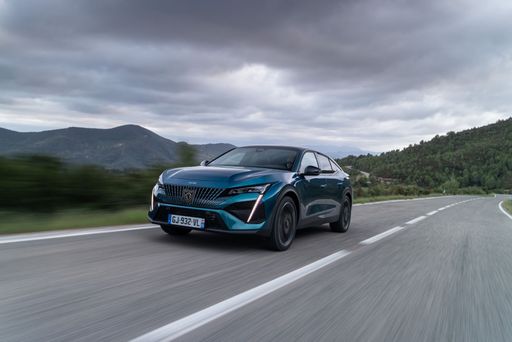 @ media.stellantis.com
@ media.stellantis.com
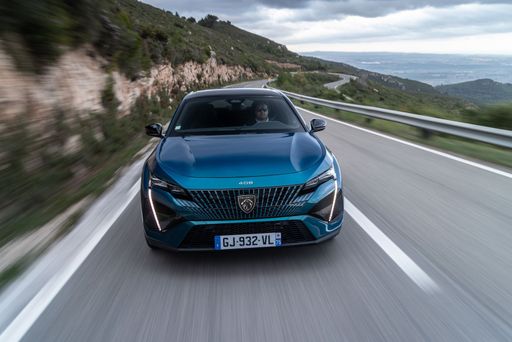 @ media.stellantis.com
@ media.stellantis.com
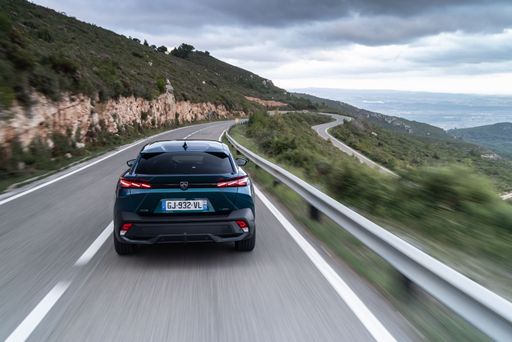 @ media.stellantis.com
@ media.stellantis.com
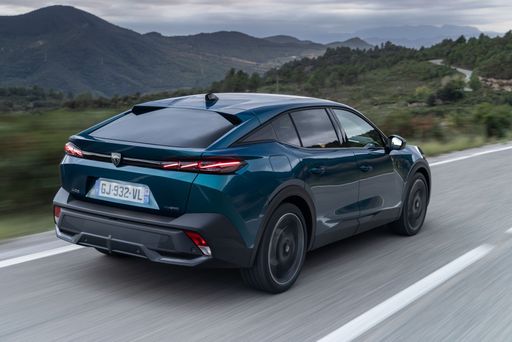 @ media.stellantis.com
@ media.stellantis.com
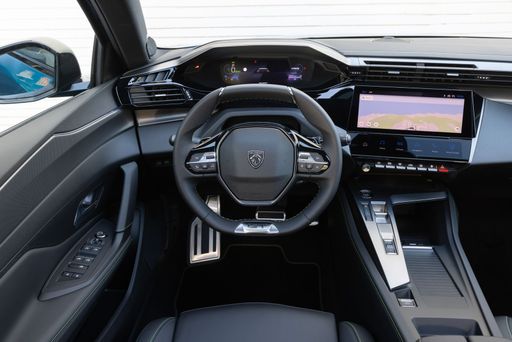 @ media.stellantis.com
@ media.stellantis.com
VW Caddy Compact Van
The VW Caddy small van is a versatile option for those seeking a practical and efficient transporter. With its sleek design and innovative features, it caters well to both business needs and everyday convenience. The interior is thoughtfully designed, offering comfort and ample space for cargo or passengers, making it a reliable choice for various tasks.
details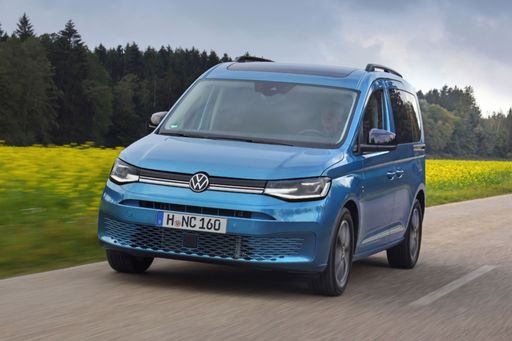 @ vwpress
@ vwpress
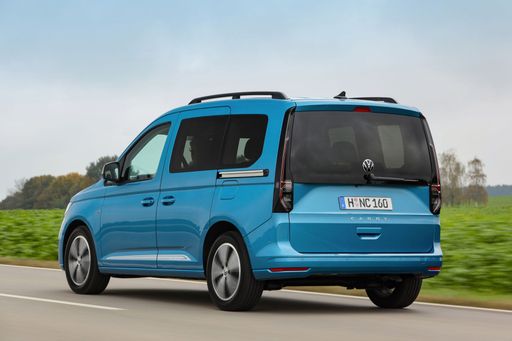 @ vwpress
@ vwpress
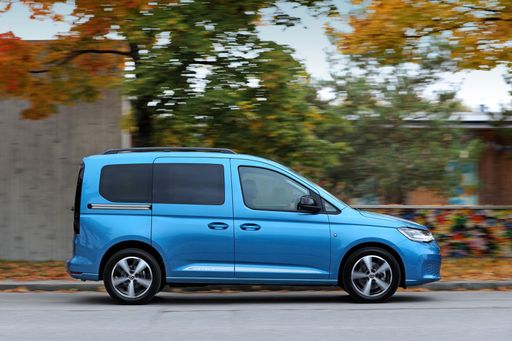 @ vwpress
@ vwpress
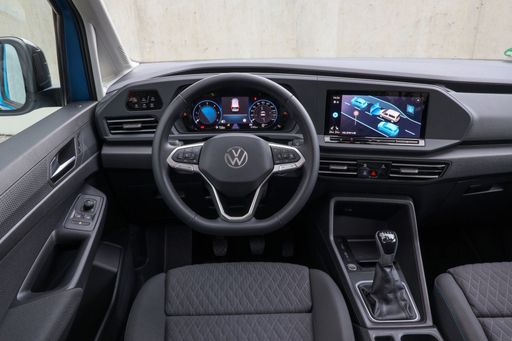 @ vwpress
@ vwpress

|

|
|
|
|
Costs and Consumption |
|
|---|---|
|
Price
34300 - 44400 £
|
Price
25800 - 42300 £
|
|
Consumption L/100km
1.4 - 5.1 L
|
Consumption L/100km
0.5 - 6.8 L
|
|
Consumption kWh/100km
15.10 kWh
|
Consumption kWh/100km
-
|
|
Electric Range
63 - 453 km
|
Electric Range
117 - 120 km
|
|
Battery Capacity
11.3 - 58.2 kWh
|
Battery Capacity
19.70 kWh
|
|
co2
0 - 114 g/km
|
co2
11 - 154 g/km
|
|
Fuel tank capacity
40 - 52 L
|
Fuel tank capacity
50 L
|
Dimensions and Body |
|
|---|---|
|
Body Type
SUV
|
Body Type
Cargo Van
|
|
Seats
5
|
Seats
2
|
|
Doors
5
|
Doors
4 - 5
|
|
Curb weight
1544 - 1879 kg
|
Curb weight
1442 - 1818 kg
|
|
Trunk capacity
471 - 536 L
|
Trunk capacity
-
|
|
Length
4687 mm
|
Length
4500 - 4853 mm
|
|
Width
1848 mm
|
Width
1855 mm
|
|
Height
1478 mm
|
Height
1819 - 1823 mm
|
|
Payload
371 - 456 kg
|
Payload
628 - 759 kg
|
Engine and Performance |
|
|---|---|
|
Engine Type
Plugin Hybrid, Electric, Petrol MHEV
|
Engine Type
Petrol, Diesel, Plugin Hybrid
|
|
Transmission
Automatic
|
Transmission
Manuel, Automatic
|
|
Transmission Detail
Automatikgetriebe, Automat. Schaltgetriebe (Doppelkupplung)
|
Transmission Detail
Manual Gearbox, Dual-Clutch Automatic
|
|
Drive Type
Front-Wheel Drive
|
Drive Type
Front-Wheel Drive, All-Wheel Drive
|
|
Power HP
145 - 225 HP
|
Power HP
102 - 150 HP
|
|
Acceleration 0-100km/h
7.2 - 9.4 s
|
Acceleration 0-100km/h
-
|
|
Max Speed
160 - 233 km/h
|
Max Speed
175 - 186 km/h
|
|
Torque
230 - 360 Nm
|
Torque
220 - 320 Nm
|
|
Number of Cylinders
4
|
Number of Cylinders
4
|
|
Power kW
107 - 165 kW
|
Power kW
75 - 110 kW
|
|
Engine capacity
1199 - 1598 cm3
|
Engine capacity
1498 - 1968 cm3
|
General |
|
|---|---|
|
Model Year
2024 - 2025
|
Model Year
2024
|
|
CO2 Efficiency Class
B, A, C
|
CO2 Efficiency Class
E, B
|
|
Brand
Peugeot
|
Brand
VW
|
Peugeot 408
The New Lion on the Block: The Peugeot 408
As Peugeot continues to innovate within the SUV segment, the latest iteration of the Peugeot 408 sets new standards in technology, efficiency, and design. With its cutting-edge engineering and innovative features, the Peugeot 408 is more than just a stylish SUV—it's a marvel of modern automotive technology. This article dives into the technical details and innovations that make the Peugeot 408 a highly compelling choice for consumers in the market for a new vehicle.
A Glimpse into the Engine Bay: Performance and Efficiency
The Peugeot 408 comes with a diverse range of powertrains that blend performance and fuel efficiency. Featuring a selection of petrol mild-hybrid, petrol, and plug-in hybrid options, the 408 caters to a variety of driving preferences. The engines have a power output ranging from 131 to 225 PS, ensuring that there's a version suited to both city commutes and highway cruising.
Fuel economy is a significant focus, with consumption figures spanning from an impressive 1.5 L/100km for the plug-in hybrid models to a moderate 6.1 L/100km for the traditional petrol engines. Additionally, the plug-in hybrid versions boast an electric range of up to 55 kilometres, ideal for reducing emissions during shorter journeys.
Ultimate Comfort and Technology in the Cockpit
Peugeot excels in creating interiors that provide both comfort and cutting-edge technology. The 408 doesn't disappoint in this regard. It offers a spacious cabin, accommodating up to five passengers, with high-quality materials and ergonomic designs that enhance the driving experience.
The infotainment system in the Peugeot 408 is state-of-the-art, featuring a responsive touchscreen interface, premium sound options, and seamless connectivity with smartphones. Advanced driver-assistance systems such as adaptive cruise control, lane-keeping assist, and automated emergency braking ensure that journeys are not only comfortable but also safe.
Design Meets Function: Exterior and Practicality
In the realm of exterior design, Peugeot has delivered a striking silhouette with aerodynamic lines and a robust SUV stance. Measuring 4687 mm in length, 1848 mm in width, and 1478 mm in height, the 408 boasts a dynamic presence on the road without compromising on practicality.
Practicality is further enhanced by a generous boot space that ranges from 471 to 536 litres, depending on the model, making it perfect for family trips or weekend getaways. A high payload capacity and thoughtfully designed storage solutions ensure that the Peugeot 408 remains versatile, able to adapt to various lifestyle needs.
Environmental Responsibility and Sustainable Driving
With a keen eye on sustainability, the Peugeot 408 offers an impressive CO2 efficiency rating. The plug-in hybrid versions, in particular, present a substantial reduction in carbon emissions, operating at as low as 33 g/km. This makes the 408 a viable option for environmentally conscious consumers seeking to minimise their carbon footprint.
The automaker's commitment to sustainability does not end at emissions. The materials used in the 408's construction are carefully selected to promote durability and recyclability, ensuring that the vehicle maintains a lower impact on the environment throughout its lifecycle.
Conclusion: The Perfect Blend of Innovation and Tradition
The Peugeot 408 is a remarkable illustration of Peugeot's ability to blend traditional automotive values with the latest technological advancements. Its innovative powertrains, luxurious interiors, and forward-thinking design make it a formidable contender in the competitive SUV market. Whether you prioritise fuel economy, driving performance, or cutting-edge technology, the Peugeot 408 is poised to meet and exceed expectations. As Peugeot advances into the future, the 408 leads the charge as a testament to the brand's relentless pursuit of excellence.
VW Caddy Compact Van
Compact Versatility: A Closer Look at the VW Caddy Compact Van
The VW Caddy Compact Van has long been a staple in the commercial vehicle sector, offering a versatile and robust solution for professionals and businesses alike. Combining impressive technical capabilities with innovative features, the latest iteration of the Caddy Compact Van continues to uphold its legacy as a dependable and efficient vehicle.
Engine Performance and Efficiency
At the heart of the VW Caddy Compact Van lies an efficient and powerful engine range designed to meet varying performance needs. The van comes with several engine options, including economical yet robust diesel engines and responsive petrol variants. These engines have been engineered to optimize fuel efficiency without compromising on power, making the van a cost-effective option for urban deliveries and long highway journeys alike.
Innovative Design and Practicality
The VW Caddy Compact Van features a meticulously crafted design that focuses on practicality and space utilization. Its compact dimensions are perfect for navigating busy city streets, while the interior offers a surprisingly spacious cargo area. This innovative design ensures that every inch of space is used effectively, maximizing cargo capacity without affecting driver and passenger comfort.
Advanced Technology for Modern Needs
Embracing modern technology, the VW Caddy Compact Van is equipped with a host of intelligent systems aimed at enhancing safety and convenience. The van features advanced driver-assistance systems, including adaptive cruise control, park assist, and a rear-view camera. These features contribute to a safer driving experience, whether maneuvering through narrow city streets or handling larger loads on the highway.
Comfort and Convenience Inside
Inside, the VW Caddy Compact Van presents a blend of comfort and practicality. The ergonomic design ensures that all controls are within easy reach, allowing the driver to focus on the road. Optional infotainment systems and connectivity features, such as smartphone integration and Bluetooth connectivity, provide a seamless driving experience, turning the Caddy into a mobile office on wheels.
Environmental Responsibility
In light of increasing environmental awareness, the VW Caddy Compact Van has been designed to minimize its ecological footprint. The efficient engine options produce low CO2 emissions while adhering to stringent environmental standards. This commitment to environmental responsibility makes the Caddy a smart choice for businesses looking to reduce their carbon footprint.
Conclusion: A Dependable Partner
In conclusion, the VW Caddy Compact Van remains a leader in its class, offering a dynamic combination of performance, efficiency, and practicality. Its innovative features and advanced technology cater to the diverse needs of modern businesses, ensuring the Caddy is not just a vehicle, but a reliable partner on the road. Whether used for transporting goods or as a mobile workshop, the VW Caddy Compact Van continues to deliver on its promise of versatility and dependability.
The prices and data displayed are estimates based on German list prices and may vary by country. This information is not legally binding.
